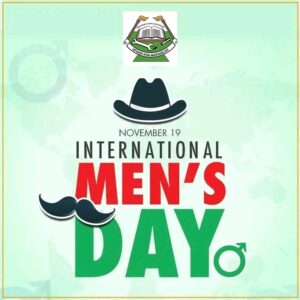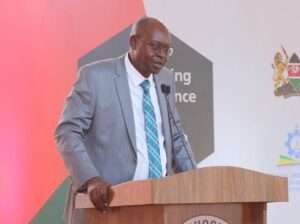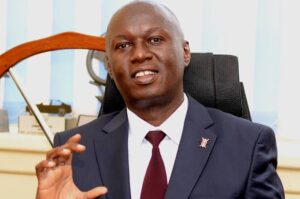The Vital Role of Fathers in Shaping Family Life: A Comprehensive Guide

In a recent discussion, Dr. Faith took a moment to emphasize the indispensable role fathers play in the home, highlighting the wide-ranging responsibilities that come with fatherhood. As family dynamics evolve, the role of a father has expanded beyond traditional boundaries, encompassing financial, emotional, and developmental guidance. His insights serve as a timely reminder of the profound impact fathers have on the well-being of their families.
**Primary Responsibilities of a Father**
At the core of fatherhood lies the primary responsibility of providing financial support for the family. This includes managing household finances, ensuring basic needs are met, and planning for future security, including saving for children’s education. However, financial provision is just one aspect of the father’s role. Fathers also serve as emotional pillars, offering support, guidance, and protection, ensuring the safety and well-being of the family.
**Emotional Support: The Foundation of Healthy Family Relationships**
One of the most crucial aspects of fatherhood is emotional guidance. Dr. Faith stressed the importance of fathers actively listening to their children and partners, validating feelings, and offering comfort in times of need. Encouraging open communication and modeling healthy emotional expression are key to fostering an emotionally supportive environment. Fathers also play a vital role in supporting their partner’s emotional needs, creating a balanced and nurturing family dynamic.
**Discipline and Guidance**
Another core responsibility is discipline. Fathers are tasked with setting clear expectations, teaching life skills, and encouraging responsibility and independence in their children. This role requires patience and consistency, as fathers model respectful communication and provide constructive feedback to help their children navigate the challenges of life.
**Role-Modeling and Community Involvement**
Fatherhood is also about setting an example. Dr. Faith highlighted how fathers should model integrity, honesty, and respect in their daily lives. These behaviors not only impact children but also shape their perceptions of relationships, authority, and social responsibility. Fathers who actively engage in community activities, volunteer at schools, and maintain positive relationships with neighbors also instill a sense of community and social responsibility in their children.
**Parenting Partnership: The Power of Collaboration**
An often-overlooked aspect of fatherhood is the partnership with the mother. Dr. Faith emphasized that co-parenting is crucial for a harmonious family life. Fathers and mothers must collaborate on discipline, share childcare responsibilities, and maintain a united front when it comes to parenting styles. This partnership creates a balanced environment where both parents are equally involved in shaping their children’s future.
**Personal Growth and Influencing Children’s Development**
Fathers are not only role models for their children in terms of behavior and values but also in the realm of personal growth. By pursuing personal interests, continuing education, and maintaining physical and mental health, fathers demonstrate the importance of self-improvement. They influence their children’s development by teaching essential life skills, encouraging educational and career goals, and fostering emotional intelligence.
**A Unique and Vital Role**
Dr. Faith concluded by reminding everyone that fatherhood is not just a responsibility but a unique and vital role. Fathers contribute significantly to the emotional, financial, and developmental well-being of their families. Their involvement, from daily care to shaping moral and ethical values, has long-lasting effects on the next generation. Importantly, seeking support when needed is not a sign of weakness, but a strength that enables fathers to be the best they can be for their families.
As we continue to redefine family dynamics, the role of fathers remains indispensable. The modern father, as Dr. Faith suggests, is not just a provider, but a partner, a role model, and an emotional anchor who actively shapes the future of their children and family.






